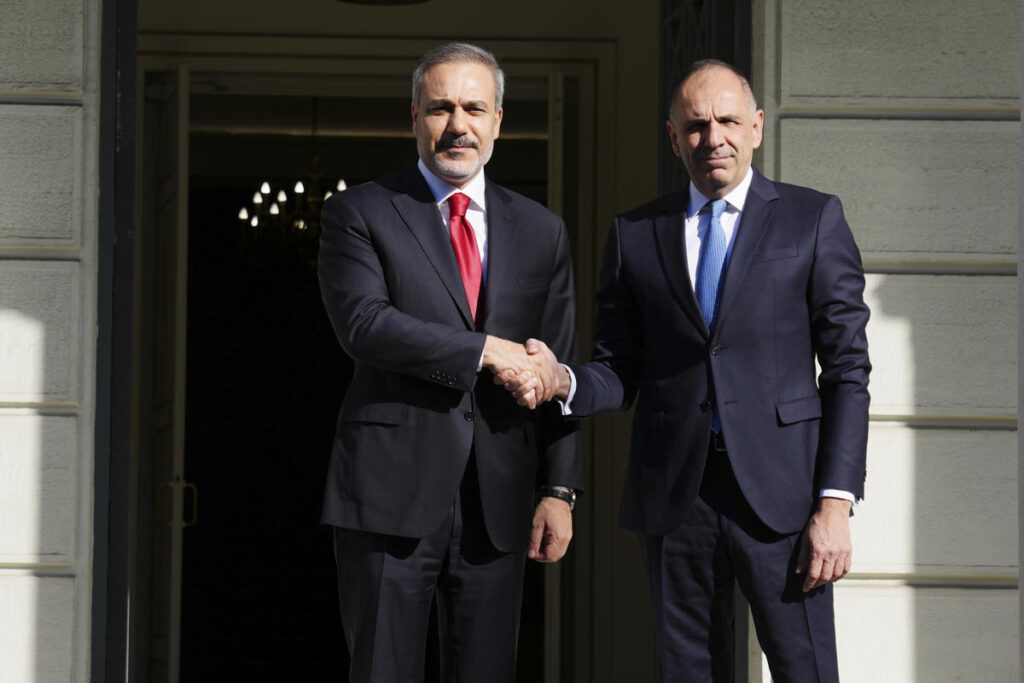Recent diplomatic efforts between Greece and Turkey have shown promising signs of improvement in their historically tumultuous relationship, according to statements from their respective foreign ministers. Both countries, NATO allies, have faced a series of disputes over several decades, particularly involving intricate maritime boundary issues. These tensions have nearly escalated to warfare in the late 1980s and mid-1990s. More recently, confrontations arose in 2020 regarding drilling rights in the eastern Mediterranean, where Greek and Turkish warships engaged in close scrutiny of one another. However, over the last 16 months, both nations have taken tangible steps toward lessening hostilities, highlighted by six high-level meetings between their leaders and over a dozen cooperation agreements signed during a significant December meeting between Turkish President Recep Tayyip Erdogan and Greek Prime Minister Kyriakos Mitsotakis.
Despite this progress, Greek Foreign Minister George Gerapetritis acknowledges that the numerous challenges facing bilateral relations remain unresolved. He remarked on the importance of maintaining communication channels that can prevent disputes from heightening. Both ministers noted that the current geopolitical climate, with conflicts ongoing in Ukraine and the Middle East, underscores the necessity of enhanced cooperation and understanding between Greece and Turkey. Turkish Foreign Minister Hakan Fidan emphasized the need for increased mutual trust, as both nations navigate a region rife with problems. He advocated for a collaborative approach to address ongoing issues that would ultimately pave the way towards prosperity and peace for both populations.
One of the most contentious points between Greece and Turkey concerns territorial rights in the Aegean Sea. The two countries have longstanding disagreements regarding the delineation of their continental shelf and exclusive economic zones, which directly impacts resource exploitation rights. A critical flashpoint arises from Greece’s intention to extend its territorial waters around various islands from six to twelve nautical miles. Turkey has vocally opposed this initiative, citing it as a potential cause for war. Additionally, Turkey’s refusal to recognize the continental shelf rights of certain Greek islands complicates matters further, with Greece insisting such a stance violates international law.
In response to these challenges, Athens has expressed a willingness to resolve the matter of its continental shelf and exclusive economic zone through the International Court of Justice in The Hague. Recent discussions between Gerapetritis and Fidan have included evaluating the groundwork for extensive dialogue on these disputed issues in the Aegean and eastern Mediterranean. Gerapetritis described this as an honest approach to a difficult yet vital matter, while Fidan argued for a broader examination of all interrelated tensions within the Aegean, underlining the necessity for mutual respect and cooperation in addressing these disagreements.
In addition to maritime issues, migration has become another contentious area between Greece and Turkey. A significant number of migrants traverse from Turkey to Greek islands each year, using Greece as a pathway into the more prosperous nations of the European Union. The increasing flow of migrants often leads to dangerous sea crossings, contributing to rising tensions between the two countries as they struggle with the crisis. During their recent meeting, both ministers acknowledged the importance of jointly tackling irregular migration and smuggling networks, underlining the need for coordinated efforts to manage this challenge effectively.
In summary, while Greece and Turkey have made strides in fostering better relations, numerous pivotal issues remain unresolved. Ongoing discussions around maritime boundaries, territorial waters, and migration highlight the complexities of their relationship, illustrating that further collaboration and engagement will be essential moving forward. Both countries recognize that ensuring peace and stability in the region is critical, given the broader geopolitical tensions at play. As they navigate these intricate challenges, the importance of dialogue and cooperation remains paramount in finding resolutions that respect each nation’s interests and sovereignty, paving the way for a more stable future.

